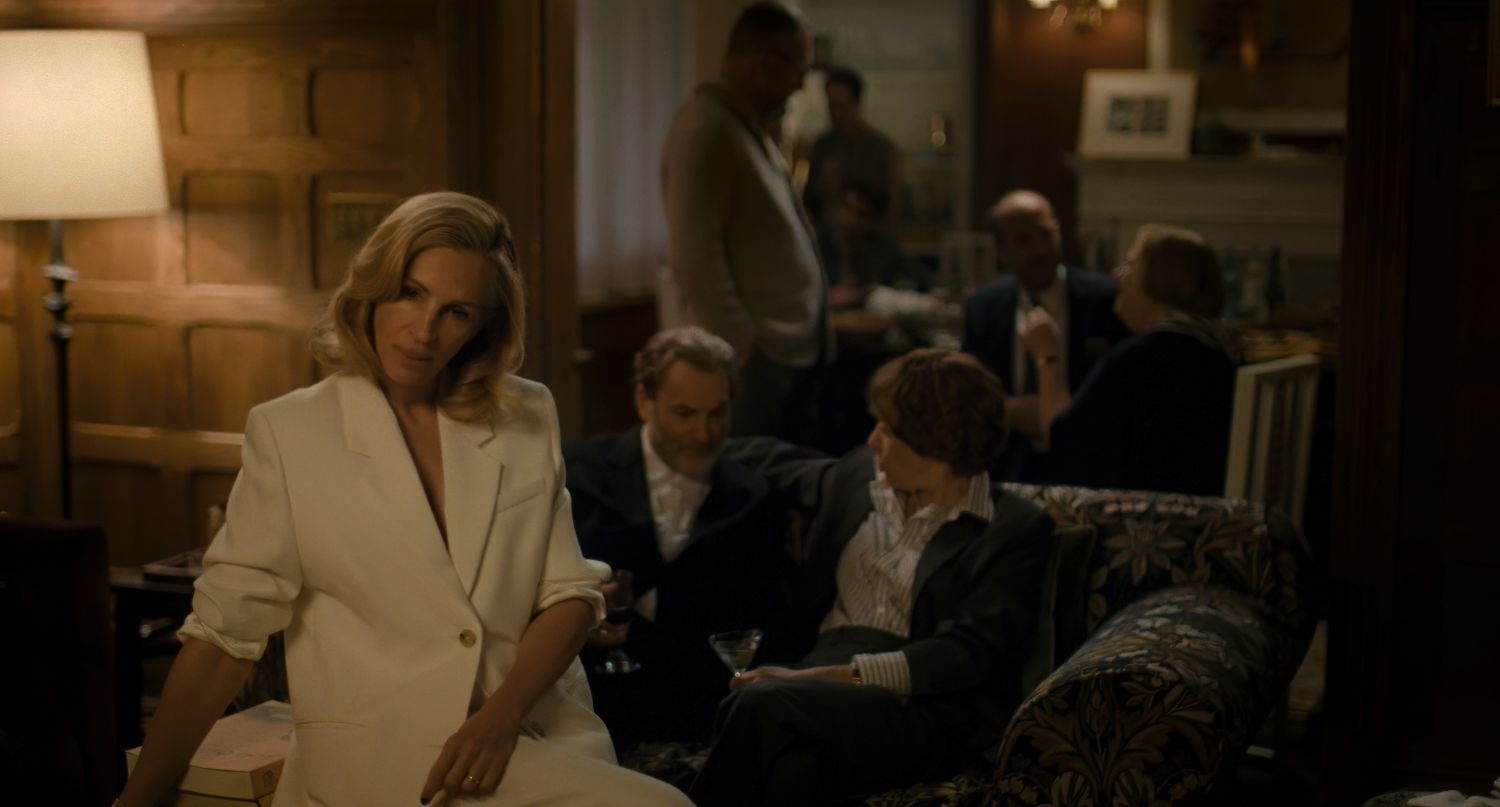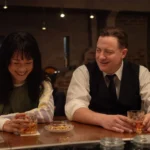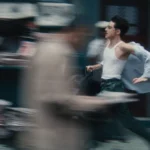No one does horny quite like Luca Guadagnino. Challengers, Call Me By Your Name, Queer – the man has a knack for depicting characters well and truly yearning for each other, thirsting for physical and emotional contact. His latest however, After The Hunt, is anything but, a dry and dragged out battle of wits centred around the philosophy department at Yale and a sexual assault accusation – covering everything from the generational gap to sexual assault with hints of #MeToo, it feels spread too thin and five years too late despite being set in the fall of 2019.
Julia Roberts stars as Alma Imhoff, successful and well-respected professor of philosophy, friend to deputy Hank Gibson (Andrew Garfield), tutor to young student Maggie (Ayo Edebiri) and wife to psychiatrist Frederik (Michael Stuhlbarg). Along with the university’s student liaison Kim (Chloë Sevigny), the group enjoy pondering the nature of existence and success at carefully curated and overly expensive dinner parties, sparing with words and seeing how far they can take mockery and jabs before someone gets upset. That is, until their bubble is burst when Maggie tells Alma that Hank sexually assaulted her – loyal to both (and yet somehow to none), Alma is unsure who to trust, as her reputation and relationships begin to unravel at the hands of this accusation.
Overlong runtime and screeching, ear-drumming bursting sound aside, After The Hunt’s primary issue is that all of its characters – perhaps with the exception of Stuhlbarg’s – are so incredibly hateable. Worse, it is not particularly enjoyable to hate them. Garfield plays the charismatic defendant with confidence, and yet, watching him dive into a smorgasbord of Indian food while he pleads his case to Alma is neither amusing nor cathartic. The performativity of the crassness of stuffing one’s face during such a conversation feels overdone and exhausting – it’s truly an eye roll moment, and one that gives Hank next to no weight thereafter. Edebiri’s Maggie meanwhile is the younger generation that Alma struggles to make sense of, and grows throughout to resent – “not everything needs to make you comfortable”, she spits at Maggie during an argument. The generational divide here is well-depicted, but it is also very timeworn, the equivalent of a middle-aged man saying the word “woke” in a comedy – except in this case, it’s a two and a half hour drama, where there is no lightness to this lack of comprehension between different ages. Both storylines fizzle separately and clash within the framework of Alma’s philosophy classes, a valuable if obvious subject considering the context. When Alma is not lecturing students, she is lecturing her entourage, pontificating about their situation or distress – here a thread of truth survives, one that could have formed the basis of a very interesting film: Alma’s preference for the theoretical over the reality before her. “I’m sitting right here in front of you”, Maggie tells her in an effort to make her recognise the gravity of Hank’s actions. “Can we stop being so smart for just a second?”, she asks rather desperately on another occasion. But Alma does not want to see the truth. Philosophy gives her a way out. Nevertheless, it is the mouthiness of its characters that adds to the confusion of what After The Hunt is actually trying to say. It is evident that there are a lot of interesting ideas and socio-political issues at play here, but none of them are given enough room to breathe – as a result, they all feel timeworn and glossed over, addressed within the single realm of “philosophy”. There is truly very little humour here – were it not for Stuhlbarg’s Frederik sassily flailing napkins around in a desperate effort to be noticed by his wife.
After The Hunt screened at the London Film Festival.





